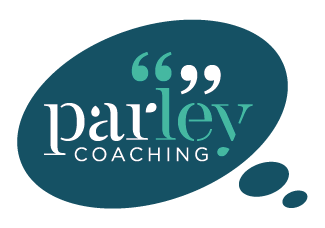 “The greatest compliment that was ever paid me was when someone asked me what I thought, and attended to my answer”
“The greatest compliment that was ever paid me was when someone asked me what I thought, and attended to my answer”
Henry David Thoreau
We all rightly cherish the moments in our life when someone we love asks for our thoughts. Many build careers around their ability to advise. But do we need to step back and think harder about the art of questioning:
What is a good question?
Do we ask enough questions?
If leaders ask more good questions, what is the impact?
I found myself returning to these questions as I learnt to coach but I will return to that later once I have reflected on my approach to questions during my life in law. My first reflection is that lawyers generally stop asking questions. Particularly as they move into managerial and leadership roles. This may seem counter-intuitive. Were we not all attracted to law by the thrill of courtroom scenes, the sight of detectives turning from the the opening door to ask one last question? But as we climb the lawyer ladder, do we forget that? Do we delight too much in being the one asked? As we become an expert and then seek to maintain our hallowed status, do we stop asking great questions? One of my consistent reflections on the legal profession since I left it is its inability to show vulnerability, to ask for help, to reach out from its bubble to those outside who may be able to help.
I have a bias towards asking more probing questions. I have always struggled with “small talk”, drinks receptions, partner retreats. Without wanting to sound pompous but probably failing, I have always looked for greater meaning, been dissatisfied with just scratching the surface. This was one of the drivers to coaching – to fill my working day with purposeful conversations. The potential of a one-to-one conversation has always been more exciting to me than sitting in meetings, where generally the purpose was to keep the most interesting issues well hidden. My learning and subsequent coaching has given me further perspective. I will briefly address each of the questions I posed at the outset:
What is a good question?
Most coaching starts with a question along the lines of “What do you want to talk about about today?”. Imagine being asked that question by somebody who you trust, who you have seen listening to everything that you say, who is on your side. When I was coached a year ago it took me a while to trust. I was that “expert” who was compelled to sell my cleverness before asking for help. Finding the right coach is not a given. But if you find that relationship with a coach, it is magical.
There are techniques to asking good questions, far too many to detail here. And there are of course different types of techniques for different situations. Interviewing Donald Trump springs to mind. But in the business context I think the best questions are those that the person being questioned wants to answer. Teach yourself to think what the people around you want to talk about and you will learn a lot and fast and you will be giving those around you “the greatest compliment”. Some working cultures nurture this. Does yours’?
Do we ask enough questions?
My experience is that professional services and advisory firms stop asking enough questions. The natural curiosity is morphed over time into something more cynical and political. Lawyers don’t like to be managed. How often have we heard this? Is the better statement, lawyers don’t like to be questioned. And if this is true, is it a surprise that the culture that often permeates is a less questioning one? COVID brings with it many questions that we will need to step up to both creatively and analytically. A complex world is different to a complicated problem. Does your business have the optimal environment to step up? Can you as a leader accept that being an expert was only a step in the direction of being a good leader? Can you start to ask good questions again?
Many reader may challenge this. But remember that a good question can never be one for which the questioner has an answer already formed.
If leaders ask more good questions, what is the impact?
There is often an obsession with certainty built around managed answers. How much will past financials tell us about the future? Ever? At least in this world of COVID and the almost forgotten Brexit? I believe that many of the businesses that will thrive are those that innovate and are more curious. The impact that a culture of good questions can have will be exciting.
And improving questioning skills will improve many in my old world of law in terms of negotiating and business development (how many times have you left a pitch and realised that you didn’t ask enough questions?)
But the coaching has helped me see something at least as important. To be listened to in the right environment is indeed “the greatest compliment”. Coaching helps but is it too much to ask that this becomes the norm, that coaches merely hand over the baton? As a leader, I found it hard. So much gets in the way. I am sorry for the opportunities lost. The impact of getting the environment right could be profound.
